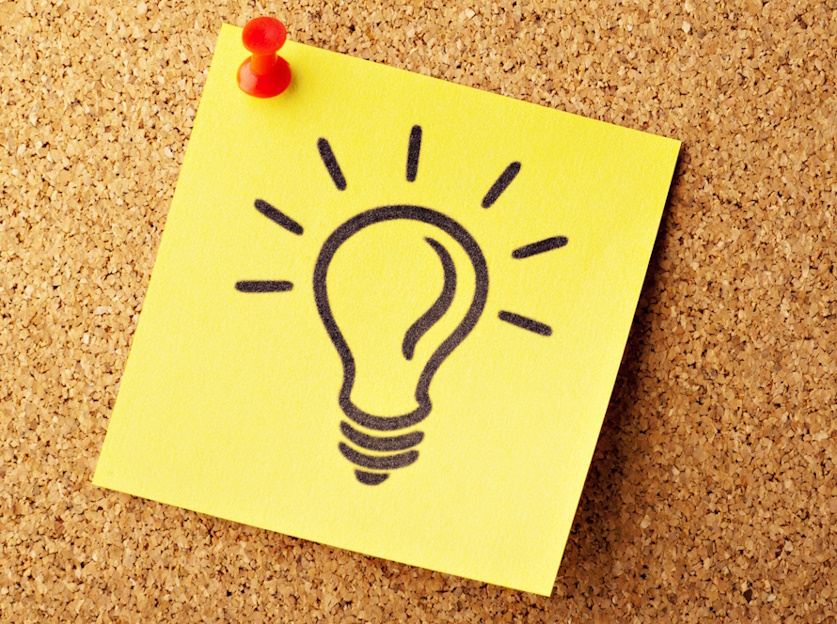As the years pass more quickly by, so have my thoughts. What I mean is, an idea pops into my head, and before I can put pen to paper, it vanishes like mist in the morning sun. Memory loss, jokingly referred to as a “senior moment,” is a common experience for those of us entering our fifth decade and beyond.
Kitchen Conundrum
Picture this: I am whipping up a family favorite, meatloaf, and I realize I need an ingredient from the basement storage. Unfortunately, by the time I reach the bottom of the stairs, the item I need has been completely erased from my mind. Was it tomatoes? Pasta? Sugar? Salt? Why would I use pasta in meatloaf? Maybe I could create a new dish…
I trudge back up the stairs, and my eyes land on the cutting board and knife, and suddenly it hits me: onion! I was needing an onion. These situations can be frustrating and embarrassing, and I cannot chalk it up to “Mommy-brain” since I am well over 50 and my children are adults. What’s more, these little sidetracks waste time. Being an organized person by nature, it feels as though precious minutes have slipped through my fingers. However, the optimistic side of me looks at the pedometer and gets excited about how many extra steps I get in each day!
But what exactly is happening in our brains, and how can we adapt to these changes?

Science Behind Age-Related Forgetfulness
The human brain, a marvel of biological engineering, undergoes subtle but significant changes as we get older.
- Brain volume begins to decrease at a rate of about 5% per decade and accelerates after age 60.
- The connections between neurons (synapses) may become less efficient, affecting the speed at which information is processed.
- Reduced blood flow to the brain can impact the overall function, including memory processes.
- The brain produces fewer chemical messengers (neurotransmitters), which are crucial for memory and learning.
These changes impact everyone differently, and they don’t necessarily lead to memory loss, but they can contribute to the mental fog older adults encounter. Episodic memory involves recalling specific events or experiences. This memory is most affected by aging, particularly short-term episodic memory. Information that used to zip through my mind now moves like it’s out for a Sunday afternoon drive.
Multi-Task Muddle
In our fast-paced world, multi-tasking has become the norm, but as we age, juggling multiple tasks simultaneously becomes more challenging. We might find ourselves starting one task, getting distracted by another, and then forgetting what we were initially doing.
These forgetful spells aren’t just inconveniences; they can significantly impact our productivity, self-esteem, and overall quality of life.

The Emotional Impact of Forgetting
While the practical implications of a fading memory are evident, the emotional toll it takes is often overlooked. Many people notice frustration or helplessness from repeated forgetfulness. Some individuals may develop anxiety, worrying about what they might forget next or even triggering fears about more serious cognitive conditions like dementia or Alzheimer’s disease. Forgetting information or tasks can be embarrassing, especially in social or professional settings. If you have persistent memory issues, it can erode self-confidence, leading some to avoid new challenges or responsibilities.
Managing Memory Loss
Address these emotional aspects directly; maintain a positive outlook; and develop ways to handle short-term memory loss. I have come up with several strategies to help stay organized and on track throughout my day.
1. Vocalization
If I have a thought or need to obtain something from another room in the house, I find that when I speak aloud, it helps me to retain the information long enough to retrieve the item or get it written down. For example, in the above kitchen scenario, I would just talk to myself, “I am needing to get an onion for the meatloaf I am making. An onion that I hope doesn’t burn my eyes. I love the smell of onions, but they make me cry.” And so on until I reach the location and retrieve the needed onion. If I still forget, my daughter is usually there to tell me what I have said. Sometimes I just continually repeat whatever it is I am needing.
2. Note-Taking
Carrying a small notepad or using a note-taking app on your smartphone can be invaluable. The act of writing things down not only provides a physical record but also engages multiple senses, which reinforces the memory, which goes hand-in-hand with vocal repetition.
3. Mindfulness
Often, when I go to pray, thoughts will come flooding in. I have found that keeping a notepad handy to jot things down as they come can quickly empty my mind, allowing me to return to my quiet time, fully embracing my morning devotion. The practice of meditation, itself, can improve focus and attention and enhance memory recall.
4. Routines and Organization
Establishing consistent routines and keeping your environment organized can reduce the strain on your memory. For instance, always keeping your keys in the same place makes it less likely you’ll forget where they are. This can potentially build confidence, save time, and prevent strain on the marriage relationship.

5. Mental Stimulation
Engaging in mentally stimulating activities like puzzles, learning a new language, or playing a musical instrument can help maintain mental vitality. Alongside this, having an active social life can provide emotional support, which is beneficial for overall brain health.
6. Physical Exercise & Diet
Regular physical activity has been shown to improve neural function by increasing blood flow to the brain. A healthy diet rich in antioxidants (berries and red beans), omega-3 fatty acids (fish like salmon and mackerel), and B vitamins (salmon, leafy greens, eggs, and milk) is vital. These practices may promote cognitive wellness and the growth of new brain cells.
Embracing the Silver Linings
While age-related memory changes can be challenging, they also offer unique opportunities for personal growth and a shift in perspective.
- Experiencing lapses in memory can make us more empathetic and patient towards others who may be struggling with similar issues.
- The need to develop memory aids and coping techniques can spark creativity and innovation in our daily lives.
- Difficulty recalling past events or planning for the future can be a catalyst to help us focus on and appreciate the present moments.
- Learning to laugh at our memory lapses can foster a sense of humility and help maintain a cheerful mindset on life.
- Relying on others for reminders or assistance can strengthen social bonds and encourage more open communication with loved ones.
- With a less reliable memory, we are forced to prioritize what’s truly important, which can lead to a more focused and meaningful life.
- Constantly developing new approaches to manage memory lapses keeps us mentally flexible and adaptable to change.
Final Thoughts: A New Journey
As we navigate the turbulent waters of age-related memory changes, it’s important to remember that forgetfulness is a normal part of aging, not a sign of defeat. By understanding the science behind these changes, implementing practical strategies, and maintaining a positive outlook, we can continue to lead rich, fulfilling lives.
Moreover, we can view this phase of life as an opportunity for growth, self-discovery, and the development of new skills. Our episodes with memory lapses can make us more compassionate, resourceful, and resilient individuals.
Whatever your retention method, make the most of it. And the next time you find yourself standing in a room, wondering what you came for, take a deep breath and smile. I am beginning to realize why older people talk to themselves. They are not actually having a conversation. Rather, they are trying to retain a thought before it floats away like a balloon into the wide-open sky and is gone.




